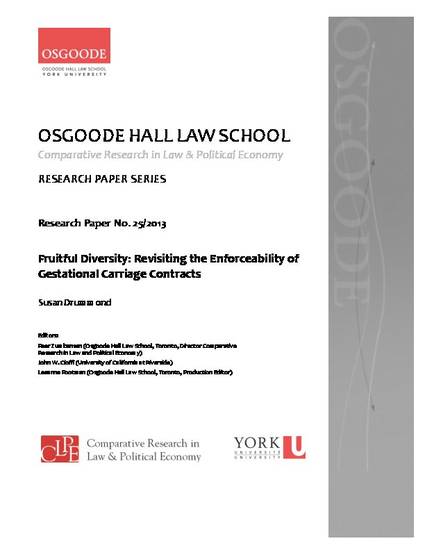
- act,
- AHRA,
- birth,
- carriage,
- Common law,
- Contracts,
- gestational,
- human,
- mother,
- parentage law,
- Parents,
- Regulation,
- reproduction
While the federal Assisted Human Reproduction Act was eviscerated by the Supreme Court challenge from Quebec to its constitutional integrity, the room allotted to the provinces to regulate aspects of assisted regulation remains to a large extent unoccupied. This is particularly evident in the domain of parentage law where a significant number of provinces have either thin statutory regulation or none at all, leaving dated common law principles to resolve disputes around parentage. Given that these common law principles were crafted in an era when assisted reproduction and the fracturing of biological, genetic, and intentional motherhood was inconceivable, the legislative lapse is significantly out of step with contemporary realities. This paper lays out the current state of parentage law in provincial regimes across Canada with respect potential conflicts between gestational carriers and intended parents. While the Uniform Child Status Act of 2010 – model legislation – proposes a consolidation of the principle that the woman who gives birth is the mother, this paper draws upon the body of recent empirical research around gestational carriage to advance the argument that intended parents ought to prevail over gestational carriers in the event of post-natal conflict over parentage.
Available at: http://works.bepress.com/susan_drummond/10/
